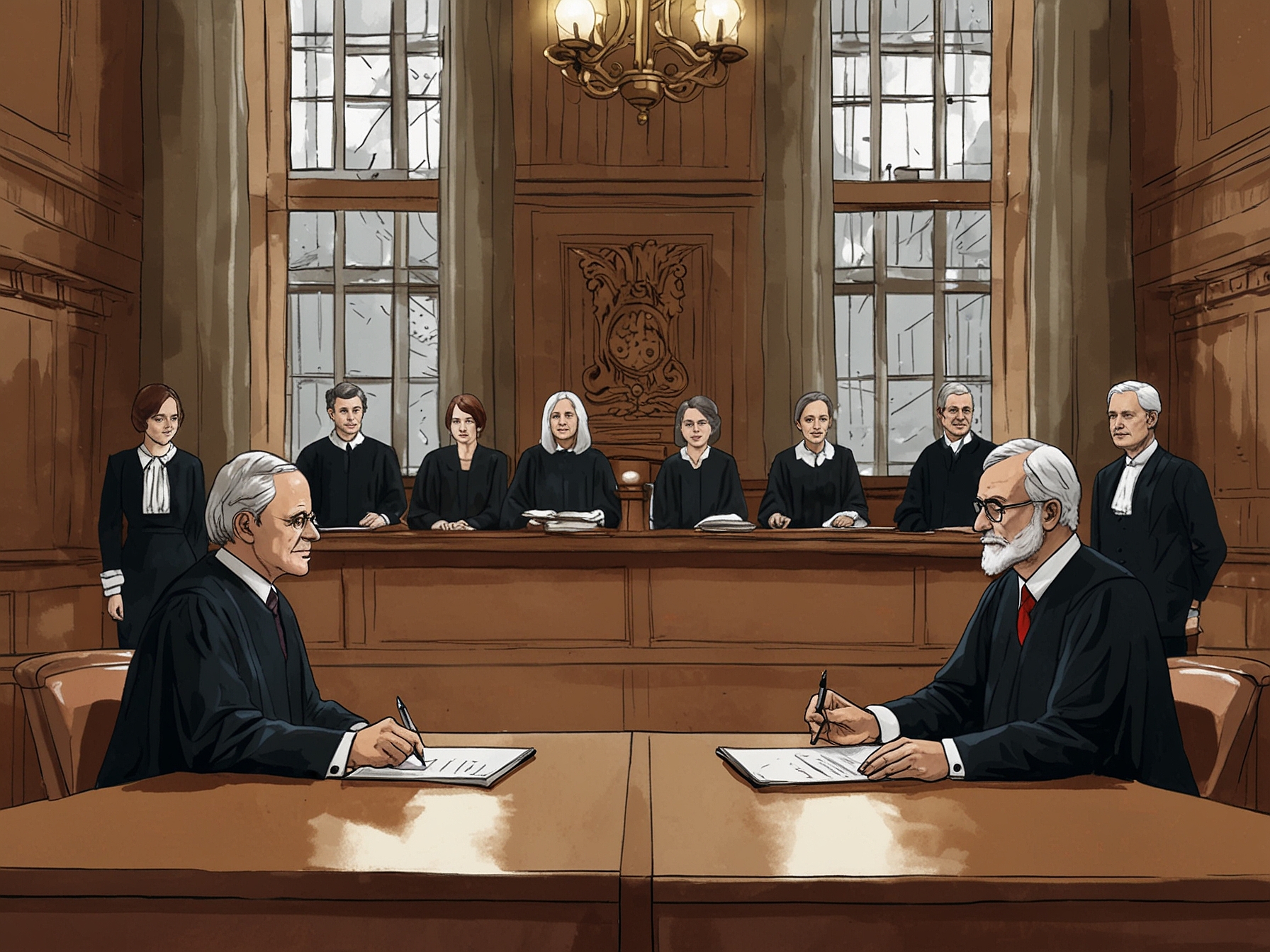In recent times, the tension between the judiciary and the legislative branches in the UK has reached new heights. The controversial relationship between these two pillars of democracy warrants close scrutiny and raises the pertinent question: do the courts now run this country? This debate is not merely an academic one, but one that has real-world implications for governance, the rule of law, and ultimately, for the people who live under its influence.

© FNEWS.AI – Images created and owned by Fnews.AI, any use beyond the permitted scope requires written consent from Fnews.AI
In 1952, an intriguing episode highlighted the friction between lawmakers and the judiciary. The then Lord Chancellor publicly rebuked the Court of Appeal for suggesting that judges should have the authority to ‘iron out the creases’ of unclear legislation. This statement underscored the then-prevailing notion that the role of judges was to interpret the law as it stood, not to reshape it based on their interpretations. That incident is still relevant today as the balance of power appears to be shifting.
The core of the debate lies in whether judges should have the latitude to interpret laws based on evolving societal norms and values or stick rigidly to the text of the legislation. Some argue that this interpretative latitude is essential for the law to remain relevant in a rapidly changing society. Others see this as an overreach of judicial power, arguing that any changes or clarifications needed in the law should be the sole responsibility of elected representatives.

© FNEWS.AI – Images created and owned by Fnews.AI, any use beyond the permitted scope requires written consent from Fnews.AI
A recent series of high-profile court cases has reignited this debate. For instance, the Supreme Court’s rulings on issues such as Brexit, prorogation of Parliament, and immigration policies have provided ample fodder for those who believe the judiciary is overstepping its boundaries. Critics argue that these rulings undermine the role of Parliament and, by extension, the will of the people, as expressed through their elected representatives.
On the flip side, supporters of an active judiciary contend that judges serve as a necessary check on the power of the legislative and executive branches. They argue that without judicial oversight, there is a risk of parliamentary or executive overreach, leading to potential abuses of power. In their view, courts play a crucial role in safeguarding individual rights and ensuring government actions adhere to the law.
Historically, the UK has prided itself on the principle of parliamentary sovereignty, meaning that Parliament is the supreme legal authority, which can create or end any law. Judges, in this context, are expected to interpret legislation in a manner that aligns with the intent of Parliament. However, as society becomes more complex and the issues before the courts more intricate, the lines between interpretation and legislation increasingly blur.
One could argue that this shift mirrors changes in other democracies around the world, where courts have taken on more activist roles. The United States, for example, has long had a judiciary that engages in ‘judicial review,’ a process by which laws and policies are evaluated for their constitutionality. Similar trends can be observed in countries like Germany, Canada, and India. This global shift toward a more active judiciary may provide some justification for the UK’s courts playing a more pronounced role.
Nevertheless, the potential consequences of this shift cannot be ignored. When courts are perceived as overstepping their boundaries, public confidence in the judicial system can erode. If people begin to see judges as policymakers rather than impartial interpreters of the law, the judiciary’s legitimacy may come into question. This is a dangerous path, as a robust and credible judicial system is fundamental to the rule of law.
To navigate this complex terrain, it is crucial to strike a balance. Clearer legislation that leaves less room for subjective interpretation by judges could be one approach. Another solution might be stronger guidelines and principles that judges can follow, ensuring their interpretations remain closely tethered to the intent of Parliament.
Furthermore, open and ongoing dialogues between the legislative and judicial branches can help alleviate misunderstandings and foster mutual respect. By working together, rather than in opposition, both branches can ensure that the laws of the land are interpreted and implemented fairly, consistently, and effectively.
In conclusion, the debate over whether the courts now run this country is far from settled. It calls for a nuanced understanding and a delicate calibration of the respective roles of the judiciary and the legislature. Only by acknowledging the complexities of the modern world and the evolving needs of society, while upholding the fundamental principles of democracy and the rule of law, can this balance be achieved.
Was this content helpful to you?





